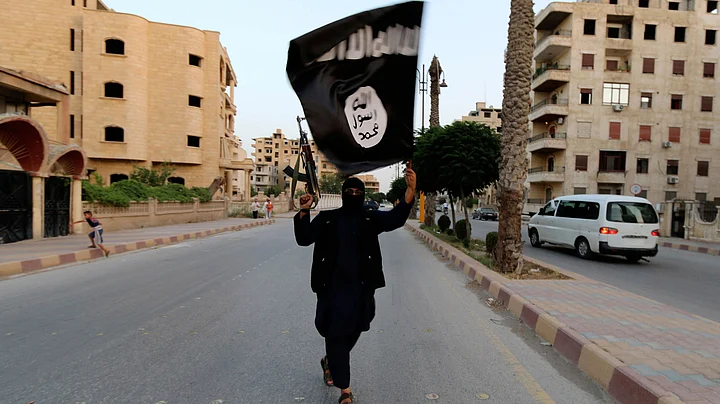1. Trump Says Reports Russia Helped Him in US Election are ‘Ridiculous’
President-elect Donald Trump rejected as “ridiculous” US intelligence reports that Russia intervened in the presidential election on his behalf through targeted hacking, putting him at odds with top lawmakers who vowed to investigate the findings.
He blamed Democrats for news reports on the intelligence findings and said he did not believe they came from the Central Intelligence Agency.
“I think it's ridiculous. I think it's just another excuse. I don't believe it,” Trump said in an interview on Fox News Sunday.
2. Syrian Rebels Get Proposal to Quit Aleppo, Jihadists Retake Palmyra
Syrian rebels have received a US-backed proposal to leave Aleppo along with civilians under safe passage guaranteed by Russia, rebel officials said as government forces closed in on Sunday, but Moscow denied a deal had been reached.
If the proposal were to be taken up by all sides, it would end four years of fighting in the city, and months of siege and intense bombardment that have created a humanitarian crisis – particularly in rebel territory that has now shrunk to a small pocket crammed with civilians.
Three officials with insurgent groups in Aleppo told Reuters that a letter outlining the proposal had been received, offering an “honourable” departure for the rebels to a place of their choice.
3. Italy Hurries to Form New Government as Banking Crisis Looms
Italian President Sergio Mattarella asked Foreign Minister Paolo Gentiloni on Sunday to try to form a new government, giving him a mandate to lead Italy out of a political crisis caused by the resignation of Matteo Renzi.
Gentiloni, a former journalist and Renzi loyalist, is set to be Italy's fifth prime minister in as many years and the fourth in a row to take office without winning a national election.
The soft-spoken 62-year-old immediately began consultations to form a government that will have to write a new electoral law and manage Italy's fragile banks.
4. Taliban Demands for Cash Stir Fears of Comeback in Pakistan’ s Swat Valley
When Pakistani shopkeeper Abdur Rahim's phone rang in mid-October, he was shocked to hear the voice of a senior militant commander demanding protection money from him and his fellow traders in the Swat Valley.
The menacing call was taken seriously in a northern pocket of the country where Pakistani Taliban insurgents took partial control in 2007, before being ousted two years later in a major military operation hailed as a felling blow to Islamist violence.
Locals fear that recent threats of extortion and a spate of targeted killings earlier this year mark an attempt by the Taliban to regain a foothold in the picturesque, mountainous area they once ruled with an iron fist.
5. Emergence of Political Islam Puts Indonesian President to the Test
As the ranks of protesters thickened in central Jakarta on 2 December, turning into Indonesia's biggest mass demonstration since the end of authoritarian rule in 1998, President Joko Widodo grappled with a dilemma: Should he join the rally or stay away?
Recounting what happened behind the scenes that day, two senior officials told Reuters that Widodo chose to ignore warnings from security chiefs and went into the crowd, appearing alongside the firebrand leader of a hardline Islamic group.
His move was widely applauded for cooling tensions that had been building for weeks over remarks by Jakarta's ethnic-Chinese Christian governor that were deemed to be insulting to the Koran.
6. Exit Polls Show Romania's Leftists Winning Parliamentary Vote
Romania's leftist Social Democrats (PSD) won Sunday's parliamentary election by a wide margin, exit polls showed, putting them in a strong position to form a coalition government with a junior ally.
Seeking re-election a year after the coalition it led stepped down amid street protests over its failure to address corruption, the PSD appears to have won the support of many Romanians with promises of increased social spending.
7. Britain to Adopt new Anti-Semitism Definition to Fight Hate Crime
Britain said on Monday it would become one of the first countries to adopt an international definition of anti-Semitism to clamp down on hate crimes after an increase in the number of reported incidents targeting Jews.
Adopting the definition formulated in May by the International Holocaust Remembrance Alliance (IHRA) is meant to make it harder for people to get away with discriminatory or prejudiced behaviour due to unclear or differing definitions of what anti-Semitism actually is.
8. Gambia’s President Jammeh to Challenge Election Loss in Top Court
Gambia's President Yahya Jammeh will challenge the results of a 1 December election at the Supreme Court, the ruling party said, raising the prospect that a shock opposition victory that was poised to end 22 years of autocratic rule will be overturned.
Celebrations erupted across the tiny West African nation last week when Jammeh unexpectedly conceded defeat after the elections commission announced the victory of opposition candidate Adama Barrow.
However, in a dramatic about-face that drew international condemnation, the mercurial former coup leader on Friday decried “serious and unacceptable abnormalities” and called for fresh polls.
9. More Than 100 Killed in Church Collapse in Nigeria
At least 100 people were killed by the collapse of a church in southeastern Nigeria, a resident and photojournalist who visited a morgue said on Sunday, but officials put the death toll at just 27.
“At Uyo teaching hospital where I am now, I could see over a hundred corpses, many are heaped on top of each other on the floor,” said photojournalist Ini Samuel. “Eye witnesses also said yesterday corpses were packed in four each bag.”
(At The Quint, we question everything. Play an active role in shaping our journalism by becoming a member today.)
